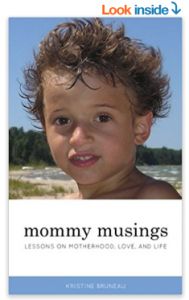Tell me a story!
Children love to hear stories. And so do adults. We love to read and listen to stories because they create magic and bestow a sense of wonder in the world. Stories teach us about life, the human condition, cause and effect, and much more. We discover ourselves in stories, and inevitably we share what lessons we’ve learned with others.
Great stories can keep you up all night.
They lure you in and then hook you and make everything else vanish, so you ignore the dirty dishes and the shower (sniff) you ought to take and pay attention. The best stories – those rich with detail, emotive, and relatable – cast a spell over us. We imagine ourselves in the same situation and feel the prickle of excitement. This euphoria is really a surge of dopamine. A chemical reaction triggered by intense curiosity. You know the feeling: Binge-watching a Netflix series, like Ozark, staying up all night to read a classic like Harper Lee’s To Kill a Mockingbird, or listening to an engaging short story like Kevin Wilson’s Biology.
Stories that resonate with us are the ones that are coherent, visual and leave us with understanding something on a deeper level than we did before.
Biology is a beautiful example of how a story sticks with you. Because of the quirky relationship between Patrick, an overweight teen trying to make sense of his sexuality, and his shy, big-hearted, and freakishly tall biology teacher Mr. Reynolds, it is completely endearing.
One of the recurring motifs in the story is a game called Death Cards. Patrick creates stacks of index cards featuring life’s ordinary moments and people dying in horrific ways. He plays the game primarily by himself or with Mr. Reynolds while they eat lunch together in the empty classroom. If you get a Death Card, it’s game over, but you get to consider what a really great life you had leading up to your early demise. Death Cards become a metaphor for transformation. Near the end of the story, Mr. Reynolds encourages Patrick to play the game without any Death Cards. This act of kindness helps Patrick feel less alone, less damaged. It also allows Patrick to ultimately accept his sexual identity and move forward.
Biology teaches some valuable lessons.
Teachers can have a significant lifelong impact on their students, who remember kind-heartedness as well as any negativity from their first role models. We are all imperfect, impermanent, and incomplete. With a bit of help, we can learn to accept our wabi-sabi-ness and change our mindset to move forward in life.
Listen to Biology here: NPR’s Selected Shorts “Best American Short Stories 2021.” (Tip: Go to 24:36 in the podcast.)
Read Biology here (downloadable PDF, courtesy of Southern Review.)


 Poetry in April
Poetry in April
